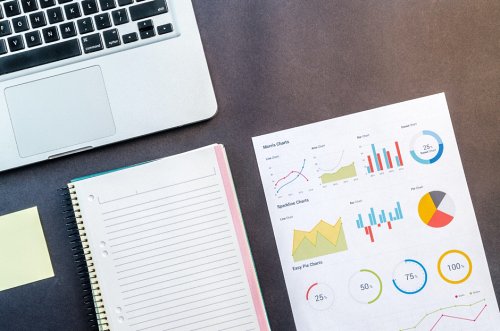With the data growing each passing minute, most industries out there have started to rely on data for their day-to-day operations, especially the data-intensive sectors like banks, retails, and telecoms. While managing data used to be a pretty straightforward task back in the day, and all it took was an excel spreadsheet, and you were good to go, things have become complex nowadays.
With the amount of data pouring in from various sources, keeping the data consistent and error-free has become a hassle. In such times, data cleaning has become unavoidable. You can’t perform any operation before making sure the information is cleansed, primarily when huge businesses depend on it.
However, the growing costs of data cleaning have got many people thinking if they really need to get their data cleaned or not. So, in this article today, we’ll take a look at the costs of data cleaning in a detailed manner and also explore if you need data cleaning at all. So, let’s start!
What is Data Cleaning?
Data cleaning is a form of data management where you perform certain operations on a set of data to make sure it’s trustworthy and valuable. It involves modifying, updating, or deleting the data, which is outdated, inconsistent, redundant, or irrelevant.
Data cleaning isn’t a very long process unless you’ve been piling data up for years or you have pulled up a lot of old data from a bunch of sources that haven’t been cleaned in a long time. That’s why experts suggest you never miss out on routine data cleaning.
Lastly, data cleaning is highly subjective. It can vary from business to business, and the same set of steps used to clean specific data might be irrelevant in another company. It depends on several factors, such as the volume of data, resources available, and so on.
How Much Does Data Cleaning Cost?
Depending on the requirements data cleaning costs from $50 to well above $10,000. The cost of data cleaning services depends highly on the volume and complexity of the data at hand. These services can range from being relatively simple such as deduplication, to as complex as data scrubbing.
I strongly recommend checking out an amazing article from hevodata, sharing an in-depth analysis on a number of data cleaning services, and tools that can charge from $0 on a trial basis all the way to $10,000.
Data cleaning is a vast field, and the people who provide data cleaning services vary depending on the type of work you want. Going in the market to get data cleaning services with a fixed budget might prove a bit hard for you if you’re not aware of the type of job you’ll need.
Hence, anybody giving you a rough estimate before getting to know the abovementioned aspects will only lead you in the dark. Always make sure you carry enough information with you to get a reasonable quote.
There are a lot of data cleaning services out there that you can explore. From freelance professionals to established services, you can find a lot of options. But always ensure they know enough about your work/business before they begin with the work.
Factors Affecting Data Cleaning Costs
Let’s take a quick look at some critical factors that decide how much the data cleaning will cost. We will explore the factors in the order of decreasing importance.
- Number of Records
It’s pretty easy to figure out that the number of records that have to be cleaned is the most significant factor in determining the cost of cleaning. If you’re a big organization with tens of millions of records, you could expect the prices to be in millions.
However, if you own a small company and have maintained a relatively small database, data cleaning wouldn’t be so heavy on your pocket.
- How Old Are the Records?
Information evolves very quickly, no matter what it’s about. For example, if you have a customer database that stores the addresses and occupations of your customers, the odds of staying relevant for more than ten years are skinny—just like that, staying up-to-date is vital.
So, depending on how old your current records are, data cleaning costs could vary a lot. A newer database would require lesser cleaning, and hence lesser charges would be accrued.
- Dispersion
When organizations expand, their customer data increases a lot, and they often end up siloing the data. So, the data is spread across several databases, and when required, it’s hard to pull relevant data from multiple tables, making easy tasks very time-consuming.
As a result, the data cleaning costs increase since a considerable amount of additional time is required to only collect relevant data from different sources before cleaning can be done.
- Level of Cleaning Required
Data cleaning is an iterative process, and it’s not simple to identify when to stop, just like cleaning a carpet where the stopping criterion isn’t clearly defined. So, determining what people mean by ‘clean data’ is a pretty tricky task to accomplish in itself.
People have varying definitions for clean data, and if you start with the wrong expectations, there’s no chance you would be satisfied with the results. Hence, a massive player in determining the data cleaning costs is how much the customers need to be cleaned.
Is Data Cleaning Necessary?
If you’re baking a cake, but the ingredients you’re using are expired, how do you think your cake will end up? Will you ever consider a cake made out of such ingredients? Right! That’s precisely the case with data.
The current data-driven world uses data as its most important ingredient, and to get a high-quality end product and experience, using up-to-date ingredients is crucial. So, no matter what task the data is used for, data cleaning is critical to ensure quality, better decision making, and high productivity.
So, no matter what field you belong to, if you’re using data to make crucial decisions, the foremost thing you need to make sure is that you’re starting with the clean data and won’t jeopardize your endeavors.
Highly Recommended Next Articles to Read
-
The Importance of Data Analysis in Research

Studying data is amongst the everyday chores of researchers. It’s not a big deal for them to go through hundreds of pages per day to extract useful information from it. However, recent
-
The Importance of Data Cleaning In Analytics Explained

Data cleansing has played an important role in the evolution of data management and analytics. It continues to evolve at a fast pace. Data cleansing is the act of going
-
Is Data Analysis Qualitative or Quantitative? (We Find Out)

Data analysis is the field that empowers us and provides us the necessary means to study data and find trends and patterns in it that could be useful to us.
Some Useful Data Cleaning Tips & Suggestions
While there are many professional data cleaning services, some people might prefer to clean data by themselves if they have little knowledge of the domain. Also, these services are sometimes quite expensive, and there have been incidents when they have even misused the data.
So, let’s look at a few good practices you can follow for better data cleaning results:
Use a Separate Notebook/Spreadsheet for Cleaning
No matter how skilled or careful you are, there are always chances that you might mess up. So, always make sure you copy your data and use a separate spreadsheet to modify or clean it. This way, even if you make a fatal mistake, all your data will still be safe.
Write Functions for Repetitive Tasks
Data Cleaning involves a lot of repetitive tasks that can often be boring. Nevertheless, you cannot skip these steps, and to get rid of doing them again and again, make functions for these steps so you can do them with a single click.
Not only does this save a lot of time, but it also keeps you from getting frustrated.
Use Automated Software
I’m not a big fan of off-premise data cleaning services unless your organization is huge, but using cleaning software hosted on your machine is always beneficial. These software have automated features that detect certain features and do the steps for you automatically.
Conclusion
Data cleaning is a tedious task and can have a wide range of budgets. Considering its open-ended nature, it’s impossible and somewhat unrealistic to estimate the cost of data cleaning before knowing the job at hand.
However, as discussed in the article, there are certain factors you can identify, which in turn can help you estimate the costs of data cleaning projects. Also, the article goes through some tips that you should always follow if you decide to do data cleaning yourself. Otherwise, there are always options to let professional organizations handle the work for you.

